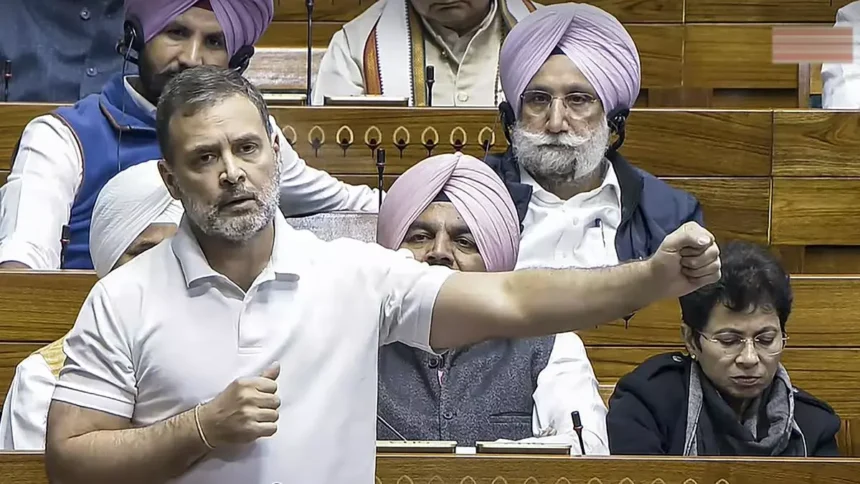The government took a significant step on Tuesday toward fulfilling the ruling BJP’s long-standing promise of conducting simultaneous elections for Parliament and state assemblies. This was initiated by introducing a constitutional amendment bill along with an ordinary bill in the Lok Sabha.
The Opposition criticized the outcome of the division vote on the motion to introduce the bills, with 269 members in favor and 198 against, indicating that the government struggled to secure a two-thirds majority in the House, a requirement for passing any constitutional amendment. However, it’s important to note that a two-thirds majority is not necessary merely for the introduction of the bills, which have now been forwarded for examination by a Joint Parliamentary Committee (JPC).
In response to the situation, the BJP has reportedly issued a three-line whip to its members and may issue show cause notices to approximately 20 MPs who were absent during the vote. The Opposition asserted that this reflects the uncertain future of the bills.
Congress leader Shashi Tharoor questioned the rationale behind the bill, stating, “The majority of opposition parties have expressed their dissent, citing numerous reasons, including its infringement on the federal structure of the Constitution. Why should the collapse of a central government lead to the downfall of a state government?” He added, “The voting results today indicate that the BJP lacks the two-thirds majority necessary for a constitutional amendment.”
During the 90-minute debate on the introduction of the bill, Law Minister Arjun Ram Meghwal assured that the powers of the states would remain intact. Home Minister Amit Shah stated that Prime Minister Narendra Modi endorsed the idea of a thorough examination of the bills by a joint committee of Parliament to facilitate in-depth discussions. “Comprehensive discussions can occur within the JPC. Following this, the Cabinet will review the JPC’s report before further discussions in the House,” Shah explained.
The first bill, the Constitution (129th Amendment) Bill, seeks to add a new Article 82A, which advocates for simultaneous elections for the House of the People and all Legislative Assemblies. It also proposes amendments to Article 83 regarding the duration of Parliament, Article 172 concerning state legislatures, and Article 327 which addresses Parliament’s power to legislate on elections to legislatures.
The statement accompanying the bill explains that “The tenure of the House of the People shall be five years from the designated date. The tenure of all Legislative Assemblies, formed through elections held after this date and prior to the completion of the House of the People’s full term, shall conclude at the end of the full term of the House of the People.”
The second bill, titled the Union Territories Laws (Amendment) Act, is an ordinary bill and does not require endorsement from half of the states, unlike a constitutional amendment. This bill aims to make necessary adjustments to the Government of Union Territories Act, the Government of National Capital Territory of Delhi Act, and the Jammu and Kashmir Reorganisation Act, 2019, in order to synchronize the scheduling of simultaneous elections with those of the House of the People and State Legislative Assemblies.










